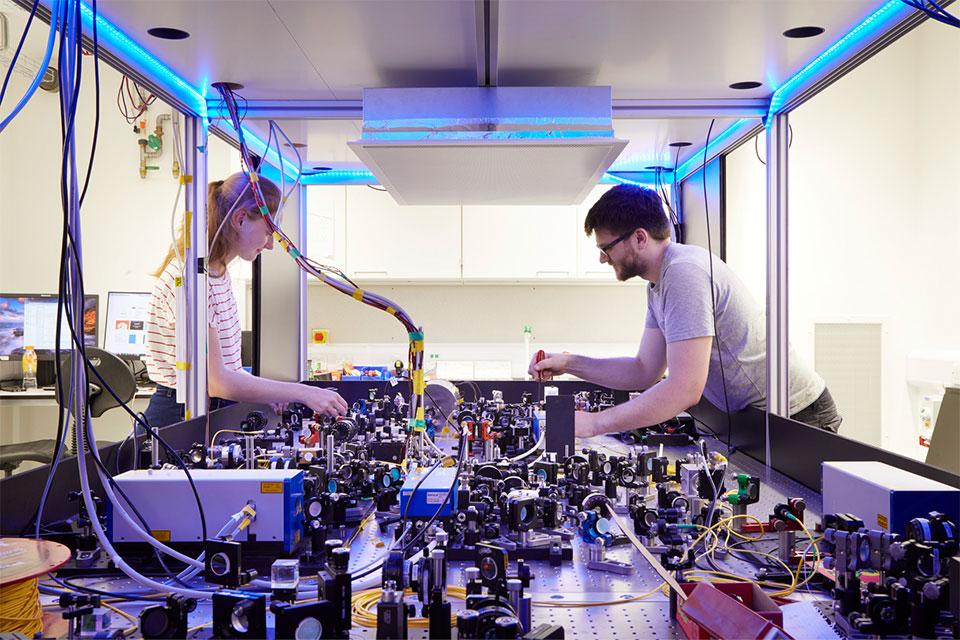Beecroft Building
Dr Eleanor Tubman, Imperial College, London
Abstract:
Magnetized, collisionless (λmfp>> Lshock) shocks are observed throughout the universe, including within supernova remnants and at the Earth’s magnetopause. These shocks have the potential to accelerate particles to far greater energies than other astrophysical processes and may provide a source of high-energy cosmic rays. One challenge, yet to be addressed, is determining the exact mechanism of the acceleration, and resulting energy dissipation by these shock waves. Designing a laboratory-based experiment that can create and investigate these shocks is advantageous for testing different theories and developing our knowledge of these phenomena.
In this talk, I will present exciting new results from an experimental platform using the Omega laser facility. A gas jet and MIFED assembly provide a pre-ionized, pre-magnetized background plasma, through which a shock wave is launched. We diagnose the effect of the magnitude of the background magnetic fields on the shock formation using both temporally and spatially resolved Thomson scattering. This allows us to measure the plasma conditions, as well as identify where the background and piston material are spatially located. We are also able to measure the evolving electromagnetic field structures using proton probing. These diagnostics have led to the first, clear identification of the shock’s development stages as well as the initial separation of the shock piston and background material. The results assist in benchmarking particle-in-cell codes and hydrodynamic models as well as interpreting measurements from spacecraft, to gain a better understanding of the underlying physics.

